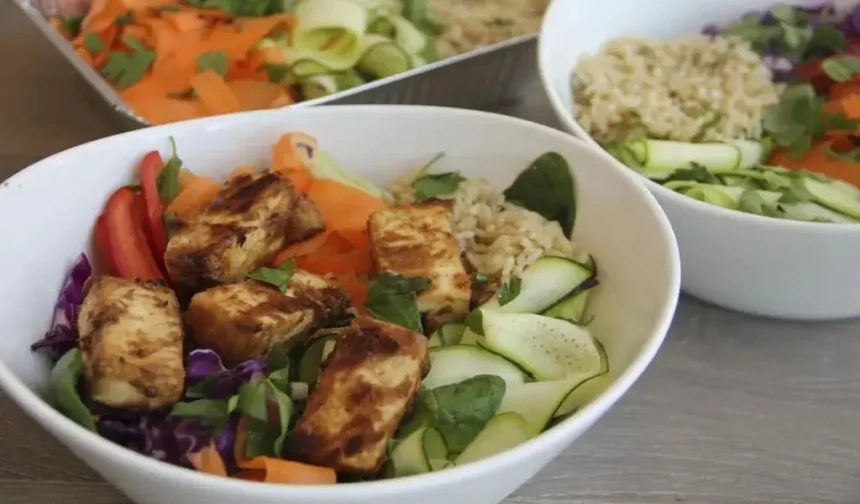(CTN News) – For the human body to operate properly, food protein is necessary. Because proteins can carry out a wide range of tasks inside cells, they are essential for the growth, upkeep, and repair of bones, muscles, and skin.
High-protein versions of a wide range of meals, such as milkshakes, granola bars, popcorn, and waffles, are being introduced by food firms. For this reason, you could be tempted to think that you need to eat more protein.
However, experts say you’re likely getting enough protein.
Federica Amati, the principal nutritionist at the health science company ZOE and the nutrition lead at Imperial College London, claimed that adding protein to meals greatly increased their profitability. “It is not supported by scientific evidence and is not grounded in health.”
It is crucial that newborns and the elderly eat meals that are high in protein since their individual nutritional needs, age, and weight all affect how much protein they need. Here are some tips to help you figure out how much protein you need and make sure you’re getting it from the best sources.
One essential material that the human body can produce on its own is protein.
Like lipids or carbs, protein is a macronutrient—a basic part of the human body that is necessary food for its correct operation. Most of the smaller molecules, called amino acids, that make up the hundreds of proteins can be produced by the body.
Because protein is so important, the body has evolved to be able to reassemble and alter the building blocks of these amino acids to make sure we have what we need, Amati noted. The body cannot synthesize all the amino acids, so we must supply them through eating.
Getting enough protein is likely to keep you from feeling hungry.
According to the World Health Organization, healthy people should eat about 0.4 grams of protein for every pound of body weight (0.8 grams for every kilogram of body weight).
Women weigh 143 pounds (65 kg) on average, compared to 165 pounds (75 kg) for men. This translates to about 50 grams for women and 60 grams for men each day.
According to Amati, the average adult in most wealthy countries earns significantly greater pay. “The main factor influencing emaciated people on subsistence diets in developing countries is protein deficits,” she said.
Bridget Benelam, a British Nutrition Foundation dietitian, says that a wide variety of foods, including nuts, vegetables, dairy, shellfish, lentils, and poultry, are essential sources of protein. Research shows that vegetarians and vegans consume less protein than people who eat meat and fish, but their average protein intake is still acceptable, she said.
Including protein in every meal is probably a good idea. “It seems that consuming protein in small quantities throughout the day is more effective than consuming it in a single sitting,” Benelam said.
Protein is present in a wide variety of consumable foods.
Foods like legumes, lentils, peas, nuts, seeds, tofu, tempeh, and meat alternatives are examples of plant-based protein sources. Foods high in protein include things like fish, meat, poultry, eggs, and dairy products like milk and yogurt.
According to Amati, the body may not absorb plant-based proteins as easily as it does animal-based proteins, even though plant-based proteins usually have a higher fiber content.
She explained that although beef has a greater percentage of saturated fat, it is a good source of protein and minerals like iron and zinc. Amati, on the other hand, proposed that the body gets fiber by eating foods high in protein, like legumes or chickpeas, which are absent from most of our diets.
Protein-rich items are unlikely to be needed.
Most people in nations like the United States and the United Kingdom don’t need more protein unless they have a specific medical condition that calls for it, according to Benelam of the British Nutrition Foundation.
Imperial College London’s Amati advises consumers to carefully check the ingredient list of protein-enriched items to make sure they aren’t overly sweet or greasy.
For those interested in building muscle, she suggested exercise as a simpler approach. Amati said, “If you are concerned about your body composition and muscle strength, you must lift heavier weights and provide your body with a challenge.” “The situation will not be improved by consuming a protein bar.”
SOURCE: AP
SEE ALSO:
New Study Highlights Walking’s Power Against Chronic Back Pain
Eyewear and Eye Health: How the Right Glasses Can Prevent Eye Strain















